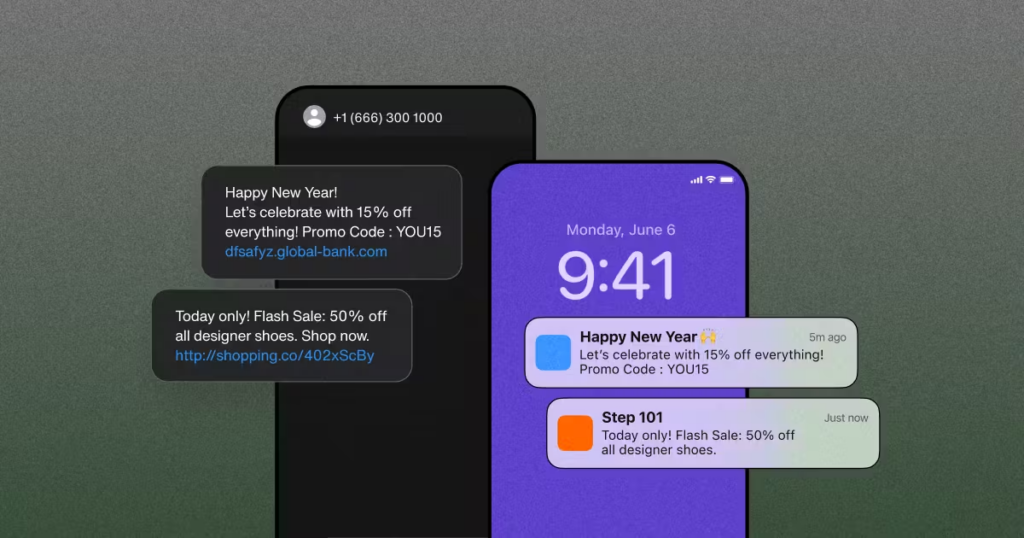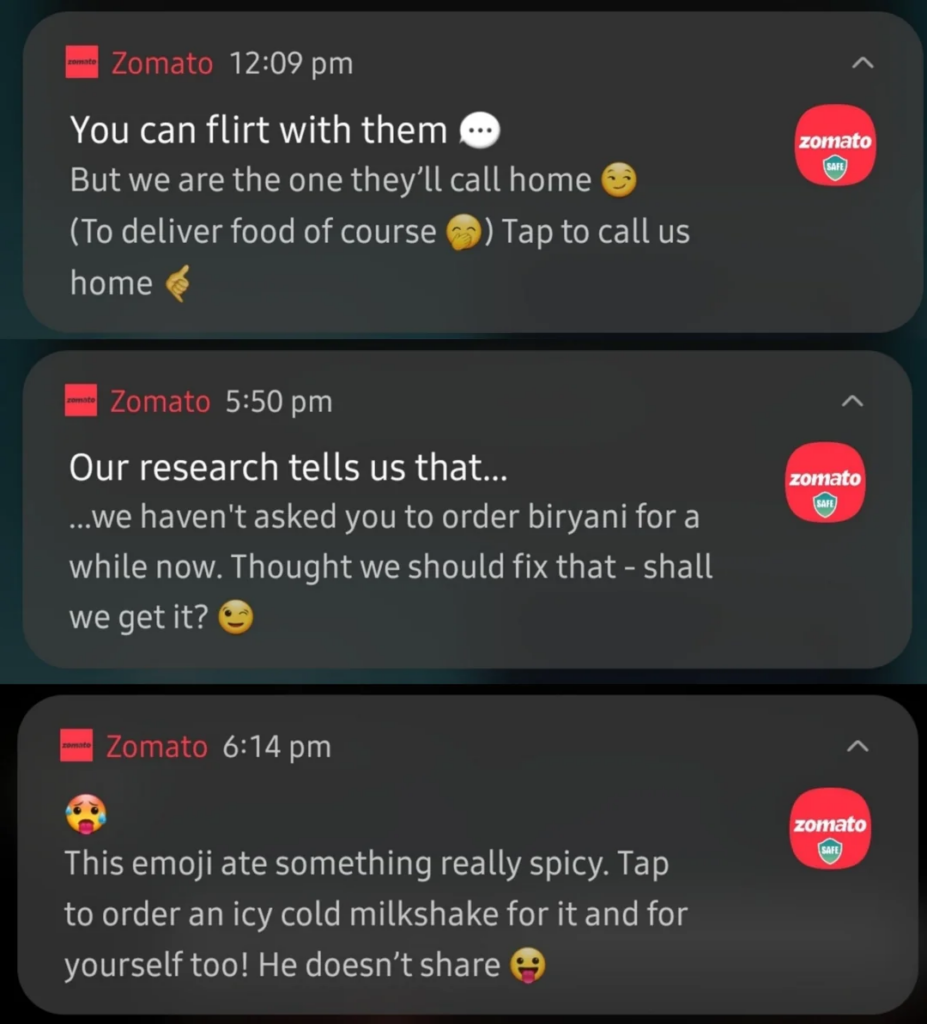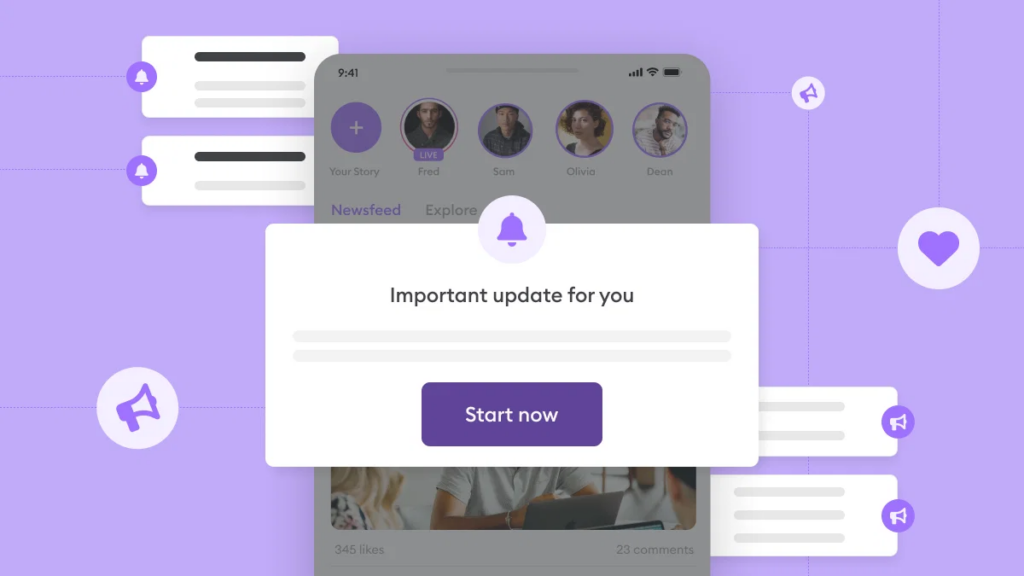We all love the cheesy and exciting notifications on our screens. Well-timed, clever, and witty texts that hit the spot and push you to check that sale out. Push notifications, in the early days, were fun and even useful, carefully crafted to catch our attention without overwhelming us. For businesses, it was a good strategy to keep their customers engaged. But lately, it looks like brands have forgotten the boundaries, in the name of marketing with depleting concern for relevance and timing.

Recently, a LinkedIn user, Pallavi Pareek posted her experience with the quick commerce platform, Zepto, which has left the netizens in splits about app notifications. She expressed her displeasure when she received the notification from Zepto about i-pills. The notification read “I miss you, Pallavi. Says i-Pill emergency contraceptive pill”

The user claimed that she had never ordered an emergency contraceptive pill and even if she did, the notification clearly violated boundaries in ‘mindless logic’. She stated concerns in the post, “So many things wrong about this. One, I have never ordered an emergency pill from you. Even if I did, you should know that this is not something that should be missing me or I should be missing it. You want me to have a need of taking an emergency contraceptive? But most important why am I getting this when this order has never been placed with you?”

Pallavi acknowledged their love for the app and how it is a ‘backbone to her life’ for placing essential orders, but this time it was clearly ‘a little too much’.The brand was quick to respond and control the damage for the insensitivity it promoted about a serious subject like i-pills, commenting that they have taken immediate action for the same.

As usual, the internet was outraged by the increasing thoughtlessness of push notifications. A user commented how it was a publicity stunt: “They wanted you to make a post about it so that they can get free publicity 🙂. That’s how marketing is working nowadays.” Another user also shared their experience with Zepto notifications- calling it ‘open flirting’.


A user advised Pallavi to turn off the notification to which she gave a perfect reply that ignoring the problem isn’t the solution.

Suggesting Zepto to leave flirty messages to Tinder, a user asked them, “Hey Zepto, I think my groceries are getting a little too personal. I’m here for the fresh produce, not emergency products that miss me more than my ex! Maybe let’s leave the flirty messages to Tinder? Just saying. You went too far, BY THE WAY…”. Someone also expressed their annoyance, commenting, “The only reason I dont have these apps in my phone .. the unwelcome adverts are sometimes crazy and idiotic.”
The users also discussed how push notifications are based on a lot of factors, including search histories and keywords.


The question doesn’t concern emergency contraceptive pills and their promotion. Sure, users should be made aware of the facilities available at the tip of their fingers which can be accessed in times of emergencies. What should be the concern is the way it is communicated. Contraceptives and their use are often accompanied by personal, emotional, and medical considerations, which should not be joked and played around with words. Not everyone is comfortable about discussing and receiving such pop-up notifications on display, which might be a cause of distress. And if it is an attempt to remove the ‘stigma’ around contraceptives, there sure are better and more effective methods to do, instead of reminding that one is being missed by i-pills.

The Zepto incident has surely made us think about the overly aggressive push marketing by brands through their apps. Till the time these remain a light-hearted pun or updates about special offers, they are acceptable. But notifications like this feel annoying and are a blatant disregard for a user’s privacy and private matters. If you run through these notifications throughout the day, firstly they are unnecessarily frequent, and secondly, most of them feel like they are prying over our personal lives.

The level of familiarity through notifications is absurd. Users have constantly reported ‘creepy’ notifications on their screens, open flirts, and cheesy lines that seem to be forced. Along with that, the use of hyper-targeted data through different sources also raises concerns about how they collect, store, and use data of their customers. There are multiple incidents when you might be googling or conversing about something, and soon receiving a notification about the same. Many of the users are ignorant about the permissions and extent of access apps have to their devices, which is further very conveniently used by apps to manipulate buying behavior.

Brands should rethink their marketing strategies before it’s too late. Catchy and trendy don’t equate to acceptable, especially when you have access to millions of people and their devices. It is time that they dial back to their strategies and refocus on engagement without employing such degenerative marketing moves.

















